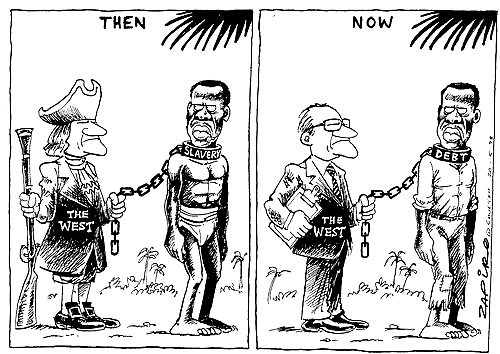By Elizabeth Malkin, New York Times 20 Oct 2011
MEXICO CITY — More than a half-century after Guatemala's elected president Jacobo Arbenz Guzman was overthrown in a coup planned by the C.I.A. and forced into a wandering exile, President Alvaro Colom apologized on Thursday for what he called a “great crime.”
In a muted ceremony at the National Palace in Guatemala City, Mr. Colom turned to Mr. Arbenz’s son Juan Jacobo and asked for forgiveness on behalf of the state.
“That day changed Guatemala and we have not recuperated from it yet,” he said. “It was a crime to Guatemalan society and it was an act of aggression to a government starting its democratic spring.”
The overthrow in 1954 of Mr. Arbenz, a former army colonel whose policies attempted to narrow the chasm betwen the country’s tiny elite and its impoverished peasants, squashed a 10-year effort to build a democratic state.
Under a succession of military rulers who took power after the coup, Guatemala descended into three decades of a brutal civil war in which as many as 200,000 people died, many of them peasants killed by security forces.
The Eisenhower Administration painted the coup as an uprising that rid the hemisphere of a Communist government backed by Moscow. But Mr. Arbenz’s real offense was to confiscate unused land owned by the United Fruit Company to redistribute under a land reform plan and to pay compensation for the vastly understated value the company had claimed for its tax payments.
Mr. Arbenz “was not a dictator, he was was not a crypto-communist,” said Stephen Schlesinger, an adjunct fellow at the Century Foundation and co-author of “Bitter Fruit: The Story of the American Coup in Guatemala.”
“He was simply trying to create a middle class in a country riven by extremes of wealth and poverty and racism,” Mr. Schlesinger said.
Under Mr. Colom, Guatemala has taken steps to address its legacy of repression. Prosecutors have won long sentences for soldiers convicted of one of the civil war’s worst massacres, and police files have been opened for families to trace the last moments of relatives who disappeared during the conflict.
The president’s apology was one of a number of steps that the government agreed to take to restore Mr. Arbenz’s name and his role in the nation’s history after five years of negotiations overseen by the Inter-American Commission on Human Rights in Washington.
“It has taken a lot of courage for the government to do what it is doing,” Dr. Erick Arbenz, the former president’s grandson, said in an interview. Noting that young Guatemalans do not even know who his grandfather was, he said: “We want to become the missing link of this new generation.”
The Arbenz family is seeking an apology from the United States for its role in the coup, he said.
The government is also revising the school curriculum and has renamed a main highway and a museum wing after Mr. Arbenz. At Thursday’s ceremony, Ruth del Valle, the president of the presidential human rights commission, presented a copy of a memoir written by Mr. Arbenz’s widow, Maria Cristina Vilanova, to their son Juan Jacobo Arbenz Vilanova.
The agreement with the family is “an example of how these processes — the search for justice and reparations for victims of the armed conflict or violations of human rights” are irreversible, Ms. Del Valle said in an interview.

